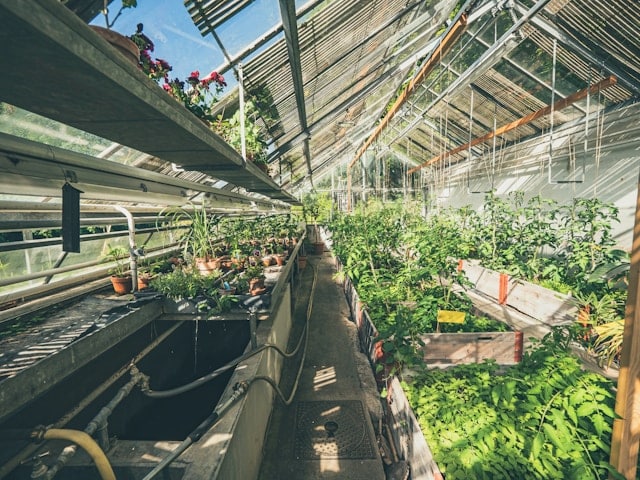What Are the Most Resilient Groundcover Plants for a Shady Courtyard?

Creating a beautiful, resilient, and low-maintenance garden doesn’t have to be a challenging task, even if your courtyard is predominantly in the shade. The secret lies in choosing the right plants that thrive under such conditions. Groundcover plants are a fantastic choice that can transform a dull, shadowy courtyard into an enchanting oasis. But which plants are best suited to cover your ground in the shade?
Selecting the Right Groundcover Plants for Shade
Before diving into the recommended plant species, it’s important to understand what to look for when selecting ground covers for shaded areas. Low-light conditions can be challenging for many plants, but there are some hardy varieties that can not only survive but thrive in such environments.
Dans le meme genre : What’s the Best Way to Install Eco-Friendly Insulation in a Period Attic?
When choosing groundcovers, you need to consider the plant’s light requirements, its compatibility with your local climate, and its growth habit. It’s also important to take into account the plant’s soil preference. Some plants prefer well-drained soil, while others can tolerate waterlogged conditions.
Moreover, the design and aesthetics of your garden should guide your plant selection. Consider the texture, color, and flowering habits of the plant, and how these elements will fit into your overall garden design. Websites like Houzz offer a plethora of design ideas and landscape contractors who can assist in creating a cohesive and appealing garden layout.
Sujet a lire : How to Design an Energy-Efficient Roof Garden with a Cooling Effect for Your Home?
The Top Five Groundcover Plants for Shade
Let’s delve into some resilient groundcover plants that will thrive in your shady courtyard.
1. Hostas
Hostas, with their lush, broad leaves come in various shades of green, and they are a popular choice for shaded gardens. These hardy plants can cover a large area and give a bold, structured look to your landscape. They can tolerate a range of soil conditions and though they love shade, they can also handle a bit of sun.
2. Sweet Woodruff
Sweet Woodruff is a charming perennial that forms a dense carpet of greenery. It sports small, star-shaped white flowers in spring, adding a lovely contrast to its deep green foliage. This plant appreciates rich, moist soil and will grow well under the shade of trees or in other low-light areas of your courtyard.
3. Japanese Spurge
Japanese Spurge is an evergreen groundcover that’s well-suited for shaded or partially shaded areas. Its shiny, dark green leaves form a dense carpet that suppresses weeds, and it has the added bonus of producing small, white flowers in the spring. This plant is quite tolerant of various soil conditions.
4. Creeping Jenny
Creeping Jenny, known for its vibrant, golden foliage, will add a touch of brightness to your shady courtyard. It is a fast-growing plant that forms a low mound, excellent for filling in gaps and covering large areas.
5. Ferns
Ferns are a diverse group of plants that generally love the shade. With their delicate, feathery fronds, they add a touch of elegance and softness to any garden scape. Some species are evergreen, while others display stunning autumn colors before going dormant in winter.
Incorporating Groundcover Plants in Your Landscape Design
A well-planned landscape design will take into account not only the type of plants you’re using but also where and how you’re using them. Groundcovers are used to fill in gaps, cover large areas, and suppress weed growth. They can also add contrast and texture to your garden design.
A combination of different groundcovers can create a tapestry of colors and textures, enhancing the overall aesthetic of your garden. For instance, the broad leaves of Hostas can contrast beautifully with the delicate fronds of ferns, while the bright foliage of Creeping Jenny can add a pop of color in a predominantly green landscape.
Caring for Your Groundcovers
Most groundcovers are low-maintenance, but they still require some care to look their best. Regular watering, especially during dry spells, is crucial. Some plants may also benefit from a layer of mulch to conserve moisture, and to ensure a steady supply of nutrients.
When it comes to fertilizing, it’s best to follow the specific requirements of each plant. However, a general rule of thumb is to apply a balanced fertilizer in the spring to promote healthy growth.
Bear in mind that while these groundcovers are resilient, they may not be immune to pests and diseases. Regular inspections and early intervention will help keep your plants healthy and thriving.
In conclusion, transforming a shady courtyard into a lush garden is possible with the right choice of resilient groundcover plants. Choose species that are adapted to your local conditions, and that fit into your overall garden design. With the right care, these robust plants will reward you with a beautiful, low-maintenance garden that you can enjoy for years to come.
Utilizing Groundcovers in Courtyard Design and Décor
Groundcovers can have a significant impact on the overall look and feel of your courtyard, even if it doesn’t receive full sun. When incorporated properly, they can breathe life and color into a dimly lit outdoor space.
The bold, green leaves of Hostas, reaching several inches tall, make a striking contrast with the delicate, feathery fronds of ferns. The bright foliage of Creeping Jenny can add a pop of color, while the dense carpet formed by Sweet Woodruff or Japanese Spurge can help suppress weed growth.
Consider how you might combine these groundcovers for maximum impact. For instance, use Hostas along the edges of your courtyard to create a living border, then fill in the center with Sweet Woodruff for a lush, green carpet underfoot. Creeping Jenny can be planted near outdoor lighting fixtures to highlight its vibrant golden hue.
Remember, groundcover plants can handle some level of foot traffic, making them a suitable option for spaces near the kitchen dining area, bathroom vanity, or bathroom vanities. In climates where temperatures drop to minus degrees Celsius or Fahrenheit, make sure to choose groundcovers that can withstand such conditions.
Maintain and Enjoy Your Groundcover Garden
Groundcovers are typically low-maintenance plants, but they do require some attention to remain vibrant and healthy, especially in shade conditions. Occasionally, you may need to perform tasks like watering, mulching, or fertilizing.
For watering, remember that most groundcovers will grow best with regular moisture. During dry spells, it’s crucial to water your plants adequately. Mulching is also beneficial, as it helps conserve soil moisture and provide a steady supply of nutrients.
When it comes to fertilizing, follow the specific requirements of each plant. Generally, a balanced fertilizer applied in the spring promotes healthy growth.
Though resilient, groundcovers are not immune to pests and diseases. Regular inspections of your plants are necessary for early detection and intervention. At any sign of trouble, be sure to take prompt action to address the issue.
Wrapping Up
Transforming a shadowy courtyard into a lush garden is feasible with the appropriate selection of resilient ground cover plants. Opt for species that adapt to your local conditions and align with your overall garden design. With the right care and attention, these hardy plants will reward you with an enchanting, low-maintenance garden to enjoy year-round.
Remember, groundcovers are effective in covering large areas, filling gaps, and suppressing weed growth. They offer a variety of textures and colors that can enhance your garden’s aesthetic appeal. By incorporating elements such as outdoor lighting, furniture, and kitchen or bathroom features, you can create a cohesive and inviting space, regardless of the light conditions.
In conclusion, a shady courtyard doesn’t have to be a gardening challenge. With the right groundcovers, you can transform it into a beautiful oasis. Whether it’s the bold and structured Hostas, the charming Sweet Woodruff, the evergreen Japanese Spurge, the vibrant Creeping Jenny, or the elegant ferns, these resilient plants are up to the task.
